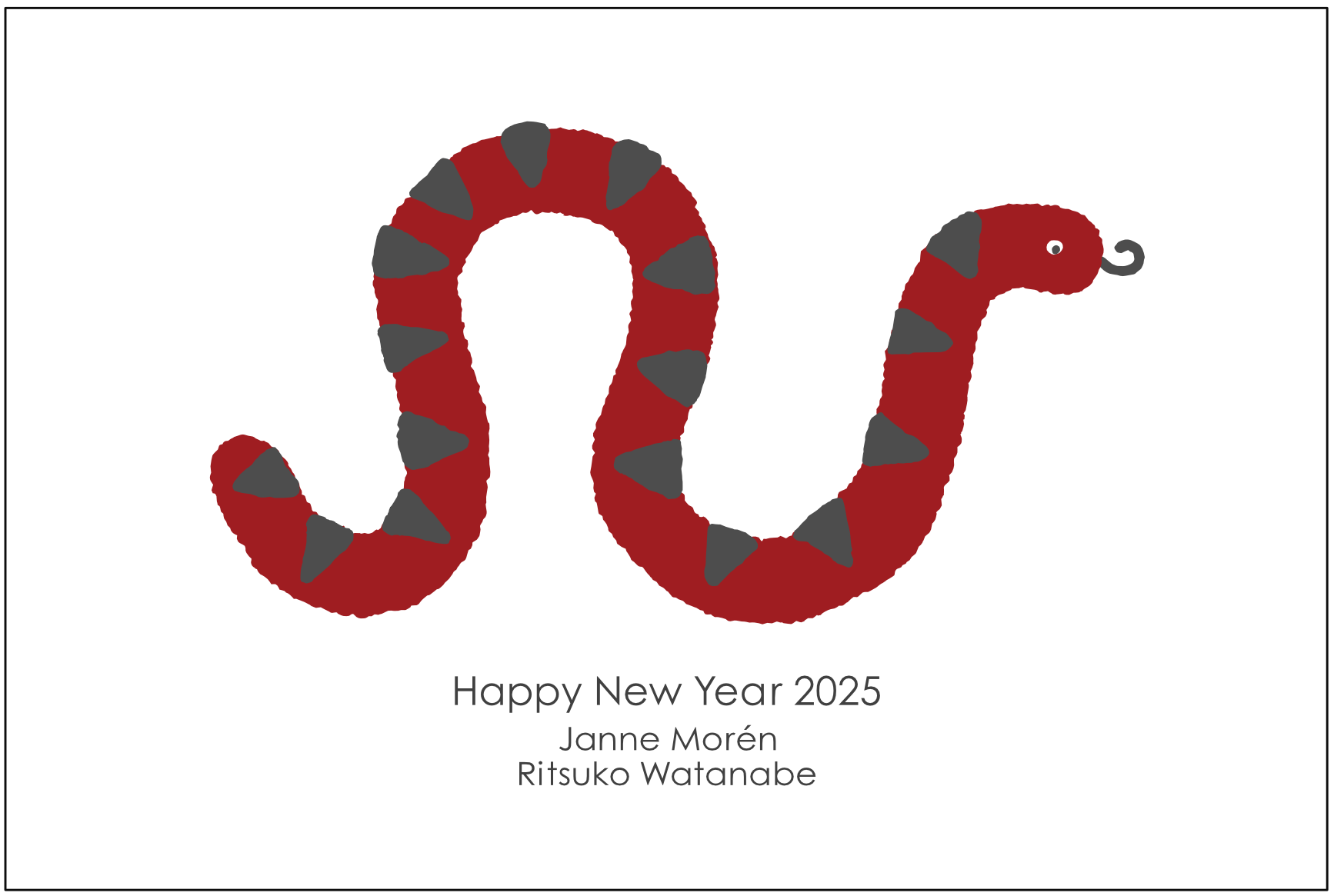 |
| 2025, The Year of The Snake |
A happy 2025 to all! Let's hope that it improves on 2024.
Janne and Ritsuko
"Shift Happens" is a two-volume, 1200-page book about the keyboard. It's
a tour de force of the history and significance of the keyboard over the past 150 years. The book is a
work of art, with hundreds of beautiful pictures, drawings, old
advertisements, font samples and illustrations in a high-quality print,
presented in a sleeve with a third volume of background notes and
commentary on the book itself.
There's an extensive history on
the typewriter, with all the different early keyboard layouts; chapters
on calculator and telephone keypads (and why they're different); on how
(and why) the QWERTY layout was adapted to other languages. There's a
whole chapter on the IBM model F and M (one of the best regarded
keyboards of all time); and another on the Sinclair ZX81 and Spectrum
(one of the worst).
This is one of my favorite books of all
time, and if they ever do a second print - a possibility, given how
popular the first print was - I urge you to get a copy.
 |
My Happy Hacking keyboard, and the second volume of Shift Happens, on the page discussing the Happy Hacking keyboard line. |
But - keyboards? Why do I care? Why should you care?
Perhaps you don't care, and that's OK. We live in a world that's managed to make meditation into an equipment sport and a way to flaunt our taste or wealth. Caring about keyboards, and spending sometimes quite serious money on them, seems like another self-indulgent hobby for the technology-obsessed.
But perhaps you should care. A keyboard is a device we interact with every day, like a monitor or a desk chair - or even like a mattress or pillow. It's a part of your working environment. How much your keyboard — or your chair — matters depends a lot on how much you use it.
If
you're sitting on the subway tapping out a message on your phone then neither the seat, the overhead glare or
the tiny non-tactile screen keyboard really matters at all. If you only occasionally work from home then your laptop and your kitchen chair is fine for a couple of hours at a time. A laptop is also fine for meetings or business trips.
But
as you work for longer stretches, and do it more often, the ergonomics start to matter — for your chair and for your desk, for your monitor, and for your
keyboard. When you're at your computer for 8-10 hours every day for years
on end, your working environment is critical for your long-term well-being
And yet, we tend to forget our keyboards.
It's
not unusual to see people insist on a Herman Miller office chair
and a high-end color-balanced monitor, but still use a regular
Apple or Dell keyboard that got thrown in for free when they bought their
computer. Most people have probably never
given their keyboard a second thought, and have no idea that their recurring back,
shoulder or wrist problems could be due to the keyboard in front of them.
Mechanical keyboards are all the rage right now — that link goes to a pretty good explainer of the different keyboard types. They're "mechanical" in the sense
that each key has its own mechanical switch built in. This tends to make
them larger and more expensive (and sometimes more noisy) than a regular keyboard. But they allow for longer key travel; a softer touch; and better, more definitive feedback. Over time it makes for less finger strain and fewer typing errors.
But you don't have to spend hundreds of dollars to get a decent keyboard. The one you got with the computer (even the cool-looking metal Apple one) or built in to your laptop really isn't very good; with really shallow key travel, unsteady keys and a hard, jarring bottom-out that hurts your fingertips.
You can go to a computer store and try a range of keyboards. Even fairly inexpensive ones in the 40-50$ range are probably already better than the one you have. There's no need to get some extreme gaming keyboard or anything.
My personal favourite is the Happy Hacking keyboards. At a research lab I worked at many years ago, they had a couple spare HHKB keyboards with Topre keyboard switches, and I got hooked. I soon bought one for home; it's now almost 15 years old, and still works as new. I still use it daily, now at work, while I got a new one for home (that's the one in the picture at the top). Yes, they're expensive, but they tend to last a long time.
If you are looking to get a new keyboard, a few tips:
If you are a heavy keyboard user, take a look at your current keyboard. How does it feel? How do you feel when using it? Are you getting strained and fatigued? Do your fingers and wrists kind of hurt after a couple of hours? A good keyboard will cost less than a night out on the town, and can have a much more positive effect on your life.
Happy New year! The Web is Dead!
No but really, have you noticed how the web kind of sucks nowadays? Search is broken, social media is people screaming at each other, the web is full of useless sites that all seem to copy each other, and it's full of intrusive, noisy, bad ads everywhere. I used to love the web. But it's really no fun any more. Cory Doctorow calls this process "enshittification", and he describes the whole thing much better than I can. Go read that, please.
The pre-web internet content was all created by individuals, who skewed very male, very white and very nerdy (an old joke is that "On the Internet the men are men, the women are also men, and the 13-year olds are FBI agents"). "Content" was mailing list messages and Usenet forum posts.
The early web was primitive and bad, but still a major improvement. Regular people soon picked it up and the web filled up with information about, well, everything. If you wanted to know about an old TV-series or the history of a defunct camera company, somewhere somebody probably had a page about that. Perhaps it wasn't well-written, correct or well designed, but it was earnest - somebody's pet project or deep interest, put out there for you to find, often through the magic of Google search.
Companies and organizations soon joined the web, and by and large they've mostly enriched the web with more information and new services. News, travel bookings, shopping, online gaming, banking, even doing your taxes — this has been a good thing.
 |
The Web was a new wave of communication. OK, that's a bit strained. |
But things changed. Google bought Doubleclick and transformed from a search company to the largest ad-tech company on earth. Search began to favour company web sites that ran advertising and made them money, over blogs and private sites that did not.
Large-scale social media took over. You no longer made a web page or wrote a blog; you posted on Facebook, Twitter, Instagram or Reddit. The social networks are as dependent on advertising revenue as Google, and so they push you toward staying on their sites, and toward posts that increase "engagement" — by making you upset and argumentative — so they can expose you to more ads and make them more money.
 |
Social media users fishing for comments. |
By now the net is a full-on garbage fire. It's the chaos of fifty clowns in a clown car, except the clowns all have fangs and rabies, and their fake flowers squirt burning napalm. Any real information is drowned out by millions of machine-generated fake SEO sites with badly copied content and dozens or hundreds of ads. Social media is full of right-wing bots screaming hate and bile into the void.
 |
How the web feels today. |
I did a small experiment recently. I searched for a specific phrase that appears in an older blog post of mine. Google returned two pages worth of SEO garbage sites before my own blog post appeared somewhere on the third page. None of the garbage sites even had the phrase anywhere on their page.
Google is probably OK with this — they make money each time you visit any ad-laden site after all, and the more sites you have to visit the more money they make. But for the rest of us search is becoming unusably bad.
So who is to blame? The giant online companies that control the web come to mind - Google, Meta/Facebook, Microsoft, Amazon and Apple, as well as regional companies such as Rakuten, Yahoo Japan and so on. They all make money from ads, and their incentives are all pointed towards more SEO garbage and less individual content. Towards removing competition and silencing anything and anybody that don't make them even more money. If that means inciting genocide or promoting racist garbage then that's just the externalized cost of doing business.
Regulators aren't blameless. They allowed these companies to take control over the web in the first place — to buy or kill smaller companies and create impenetrable moats against competition. Yes, the EU is moving in the right direction, but it is very little and very late.
To be clear, I don't believe there's much evil intent on the part of most companies. CEOs are not by and large twirling their moustaches while tying maidens to railway tracks. But their income depends on inciting anger and violence, promoting garbage, discourage civil discourse and suppressing any alternatives to the big tech behemots themselves. As Upton Sinclair put it, "It is difficult to get a man to understand something, when his salary depends on his not understanding it."
We also must blame ourselves. Me, I'm personally to blame. It's partially my fault. And probably yours too.
Over time we have stopped putting stuff online. We stopped making web pages and posting on forums and writing blogs in favour of Facebook, Twitter and other siloed social media. And now, as public social media is becoming increasingly shrill, competitive and nasty, we have started to withdraw from the public internet altogether.
We write less. We post less. And when we do, we increasingly do it in private spaces - in private chats on Whatsapp, Line, iMessage, Slack or Discord. When only you and your friends can see your conversations you won't get harassed by fake followers, far-right bots or some reply-guy high on painkillers and resentment towards your race, gender, political stance or opinion on superhero movies.
But when only you and your friends can see what you write, nobody else can. When you share your neat trick for getting lint out of the washing machine, or a surprising fact about the db V65 diesel locomotive, or explain a new paper your research group published, or that you've discovered that the Kalevala mythos is really cool, or that you have trouble doing a consistent cross-stitch, then nobody else will learn from it and nobody else will give you feedback. Like with open source software, sharing information makes everybody just a little richer. And when we don't share, we all get just a little poorer.
Over the past ten years my regular blogging has gradually dropped, and a year ago I gave up. It felt pointless to keep writing here, shouting into an uncaring void with only spam comments to keep me company.
I also started using Mastodon. It is, for once, a social media network that doesn't promote "engagement" — that is, make people upset for money. It is a slower experience but, also, I think, a much healthier one. I feel comfortable there in a way I haven't been elsewhere. There certainly are assholes there as anywhere, but it is much easier to avoid them; nobody is pushing posts on to you that you don't want to see. It's easy to block people and filter out subjects.
 |
Looking forward towards the future. Or something like that. |
And it is there that I realized that the death of the common web is not inevitable. It was our collective choice to give in to the big tech companies that is killing the web. And it's ultimately our choice to start ignoring those companies that can revive it.
I thought I was writing into the void, but everything I've written is read by quite a few people. I got inspired to search a bit, and found many other blogs and web pages that refer to some old post of mine (especially posts about old cameras). I just never heard about it. I should have realized that's a thing — I read and use other peoples' blog posts in the exact same way.
So what am I arguing for? Not a revolution — nobody can touch the big corporations running the web. Instead, perhaps, an escape. We can't do anything about the dissolution of the web at large; but hiding in private chats is not our only way out either.
What we can do is simple: Start writing stuff again. And recording stuff. And filming stuff. And put it out in public - not on the corporate social media, but in your own blog, in your own web page, on Mastodon, on Peertube and wherever; put it where anybody can find it and react to it and link to it. Anil Dash has a great piece in Rolling Stone about this.
And link to other people's stuff. Tell your readers, listeners or viewers where you got your ideas. Where they can go for more information. Where they could get inspired. Could be individuals, could be companies' sites. Yes, it could still be on Youtube or other corporate social media — not everybody is on board with this and it's still really valuable.
Me, I'm going to start writing here again. How, exactly, I don't yet know. I will probably take some pointers from the idea of a digital garden and start treating this space as more of an ongoing notebook, not a set of essays. That's how this blog began almost 20 years ago after all, and I think it's time I returned to that.
Hi, is this on?
Yes, so it's been a while. Turns out I'm sticking with Mastodon this time around, so a lot of random thoughts I'd have posted here now go there instead.
Also, my Japanese lessons involve a lot of short essay-writing nowadays. After I spent several hours writing something in Japanese, I'm not really in the mood to turn around and do more writing in another non-native language.
Meanwhile, here's something that happened.
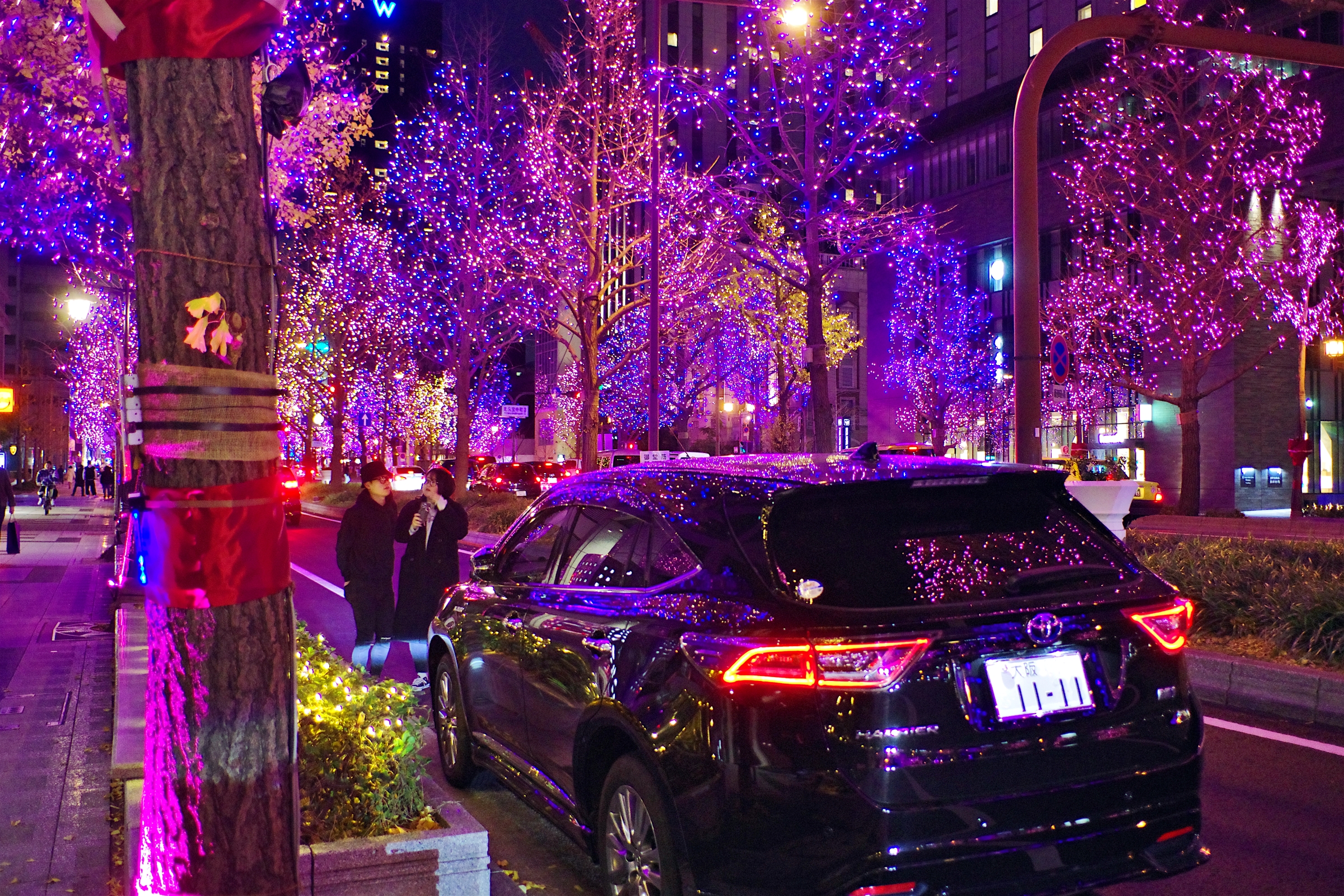 |
Another winter holiday in Osaka. Midosuji is decorated with light from Namba up to Nakanoshima every December. Very cool, and lots of people stop to take pictures at dusk. |
Ritsuko's phone was getting old. It's a Pixel 3a that's out of support by now. We've both long liked the Google Pixel series; they're the best unlocked phones you can get in Japan. The phone market here is still broken, with most new models available only from the providers, and only if you sign up for an account. Anyway, she picked the Pixel 6a.
It's a solid choice and a great mid-range phone. But unlike the earlier Pixel phones, Pixel 6 onward have an optical fingerprint sensor embedded in the screen, rather than a capacitive sensor on the back. That optical sensor works fine for most people, but is erratic or even unusable for some. It's seems related to having dry or cold hands, or shallow prints. Unfortunately Ritsuko is one of those people.
She understandably didn't want a phone without a fingerprint sensor, and we didn't want to return the phone — it's a good phone, bought at a nice discount. Our solution: she took my year old Pixel 5 and I got the 6a. The 5 is far more "premium" (and cost twice as much) and still decently new; and it has the capacitive sensor that works well for her.
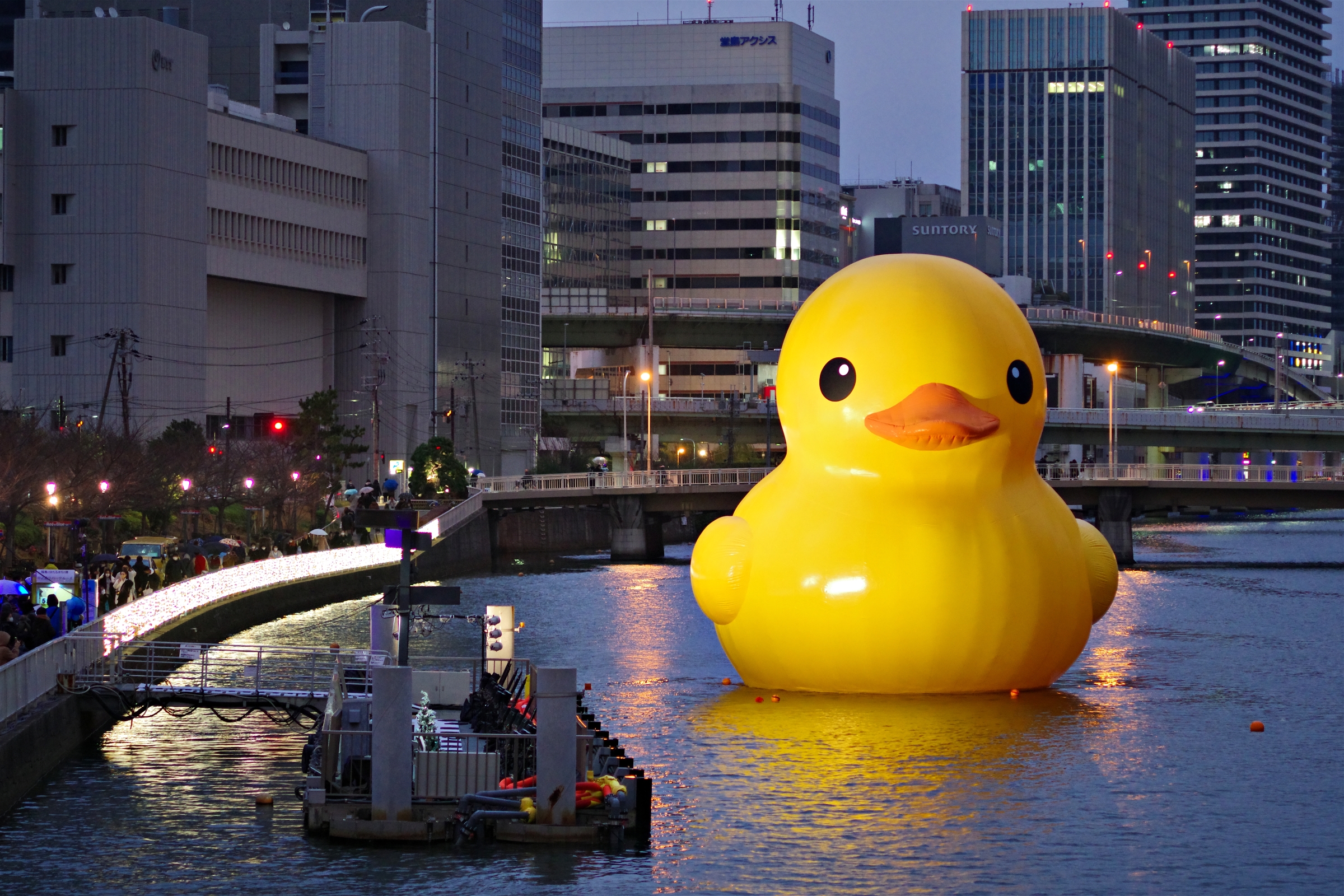 |
Big Friendly Duck made another appearance! Rainy, but otherwise a fun evening. |
So, I had a high-end phone for almost a year, and now a mid-range one for a few months. What's the actual difference between them?
So first the obvious things. The 5 is a bit smaller and shorter, a bit lighter and just a little thinner. The 6a has a larger screen and a larger battery. That's not a reflection on quality or price; it's just a design difference. Phones come in different sizes and which one you prefer is personal. I think I may prefer the larger screen on the 6a.
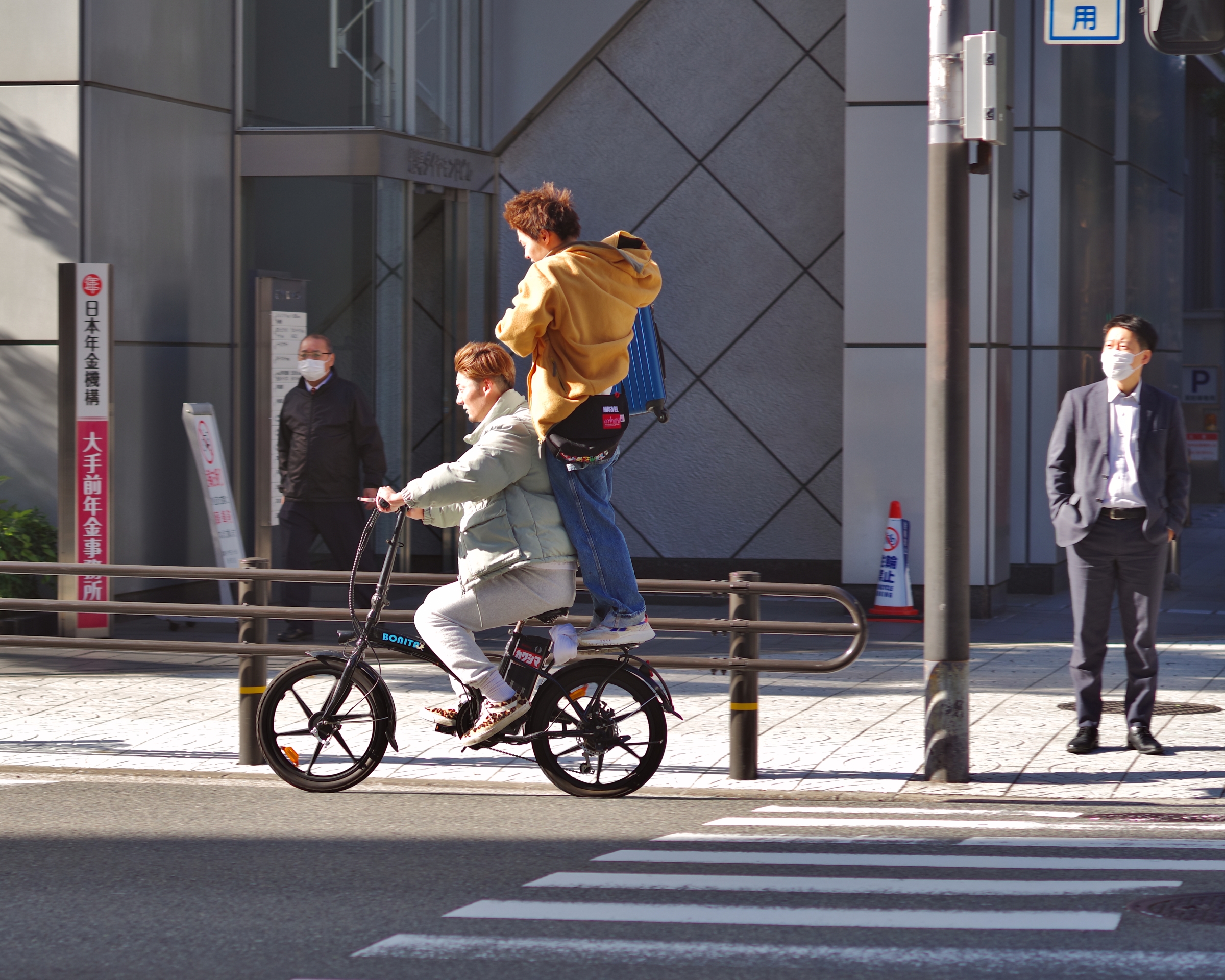 |
You do what you do with what you have. I hope they arrived OK. |
Things that makes no difference at all. The 6a has a faster CPU, but I can't detect that in use. The Pixel 5 has a more premium screen, but when I put the phones down side by side, match the brightness and show the same image, I can't tell the difference.
The Pixel 5 supports one oddball satellite navigation option and some older wireless standards the 6a lacks; the 6a has support for Wifi 6. None of which matter at all to me (and I suspect most other people). The 5 has 8GB memory to the 6a:s 6GB, but Android is really good at managing memory use so again, I never even notice.
Stuff that differs but doesn't really matter. The 6a camera is slightly better to my eyes. They're basically the same hardware but the 6a has some newer tweaks. Bluetooth also seems to be a bit more stable on the 6a (not that the 5 is bad or anything). And the 6a speakers are louder.
The Pixel 5 sandstone-textured back looks and feels better, more premium. The 6a does look fairly striking in white with a black camera stripe. Either way you're going to cover the phone with a case anyhow.
 |
Stairs. |
Actually important differences. This is the points you'd actually care about when choosing a phone.
And finally, the fingerprint sensor. The back sensor on the 5 is reliable and fast, and great when you hold the phone in your hand. But it does suck when it's on your desk. The 6a sensor works fine for me, but some people have lots of difficulty with it. And the front screen location is truly useful — you can unlock the phone when it's sitting on a table without picking it up.
25000 yen, or 40%. That's how much more expensive the 5 was compared to the 6a. The actual difference is even larger as we bought the 6a on sale. That's a fair amount of money.
In the end, was it a fair trade? Yes, I think so. I'm as happy with the 6a as I was with the 5, and Ritsuko got a major — and much needed — upgrade. Would I consider getting another "budget" model the next time? Again, yes. Nothing about the 6a feels cheap or compromised in any way.
Phones are a settled product by now; for the most part they all do the same stuff, in the same way, as any other. And the 40% premium for a high end phone feels frankly a lot to pay for, in my case, wireless charging and nothing much else.
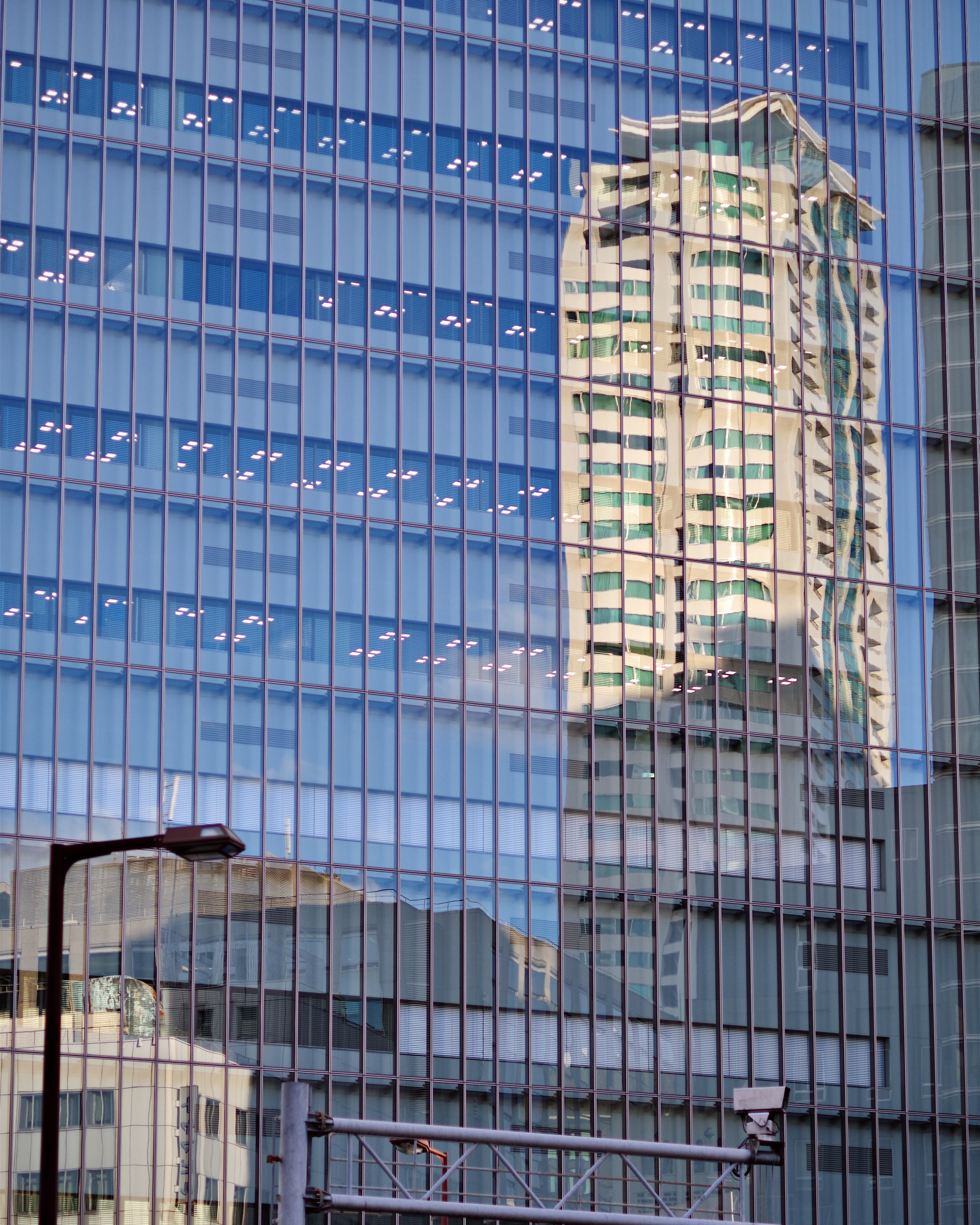 |
Reflections. On phones, that is. |
Merry Christmas! Long time no see!
Things have been quiet around here, but I have been busy writing — homework, in Japanese, for my teachers' eyes only. Every couple of weeks I write a short essay on something, anything, just to work on my skills. Writing is probably the best way to improve your grasp of a language, but it does take forever and a half to finish anything, leaving me with little energy to write anything here as well.
 |
Christmas light festival in Sapporo. |
Meanwhile I've also become active on Mastodon. It is a distributed social media system that can be used as (but is not limited to be) a sort-of replacement to Twitter. I tried it once before but gave it up. Due to certain shenanigans at Twitter lately there's a lot more people and more activity there now, and I find myself sticking with it.
My address is @jannem@fosstodon.org. I mostly follow other people but I also tend to post shorter comments that just don't fit well in a blog like this. Another reason I post here less nowadays I guess.
 |
Toya train station. |
In other news, Japan has had another round of "Go To Travel!", a travel promotion system to help the hospitality industry recover (and promote bad English slogans, but I digress). You get a heavy discount on your travel costs, and vouchers to spend on site.
The promotion is well designed; at check-in the hotel hands you 3000 yen of vouchers per person and night to spend. But you have to use them by the next day so you really have to spend them locally on food and drink, gifts and so on, not take the vouchers home to pay for groceries. It makes sure more of the money is spent in local travel destinations, not just the major cities.
 |
The lake village is a strip of resort hotels along the shore, then a few streets worth of houses behind them. Shame about the view, but I guess it pays the bills. |
 |
A cozy cafe with good coffee. |
We took the opportunity to stay a night in Sapporo, then two nights at Ko No Sumika, a ryokan by Lake Toya in Hokkaido, about as remote and free of people as you can find without ending up camping or something — COVID is still very much a thing on one hand; but we do want our creature comforts on the other.
 |
First place I've stayed at with coffee filters and an actual coffee grinder. Made the morning coffee before breakfast all the more enjoyable. |
 | |
We had a traditional dinner the second evening. |
It wasn't cold enough for snow, but the views were still very beautiful, and the whole trip really relaxing. Even the train ride along the coast is an event with lots of views - if you go, do take the train, not a shuttle bus.
 |
A view from the rooftop onsen. Life could be worse. |
It's been a very pleasant mini-holiday. Three nights is perfect - long enough to experience a place, but not so long that you get bored, or have to make arrangements for your plants at home or anything like that. We're already planning another one for next year.
 |
Mt. Yotei at sunrise |